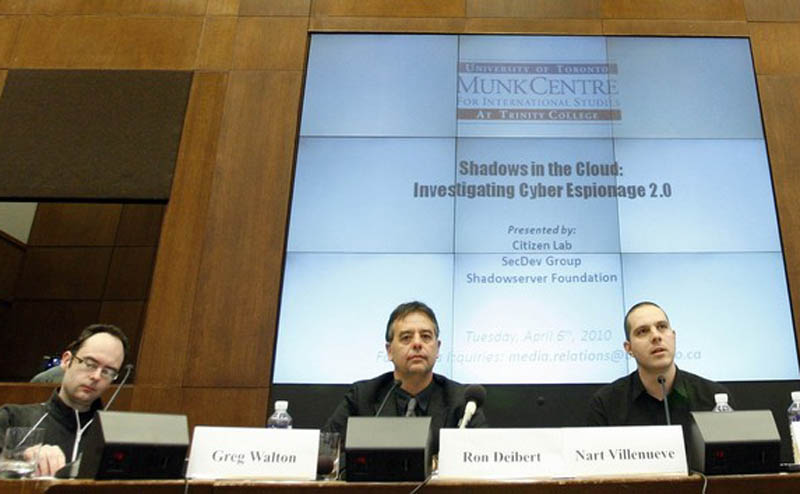 Dharamshala: Naming the group the "shadow network", researches of the Munk School of Global Affairs at the University of Toronto, have released a new report, in which states that up to 1500 personal emails dating from January 2009 to November 2009 of His Holiness the Dalai Lama's had been stolen.
Dharamshala: Naming the group the "shadow network", researches of the Munk School of Global Affairs at the University of Toronto, have released a new report, in which states that up to 1500 personal emails dating from January 2009 to November 2009 of His Holiness the Dalai Lama's had been stolen.
Not only His Holiness the Dalai Lama was attacked, but also classified documents about the security of several Indian states, documents of India's relations with West Africa, Russia and the Middle East. Also the 21 Mountain Artillery Brigade in Assam, three air force bases and the Indian Military Engineer Services in Bengdubi, Kolkata, Bangalore and Jalandhar were infiltrated.
As Indian government computers were breached documents related to the travel of NATO forces and reconstruction missions in Afghanistan are also in jeopardy. Due to the fact that persons working for NATO travel through India and are issued visa's through government computers, computers that were compromised in both Kandahar and Kabul in Afghanistan.
Even though the main focus of the cyber attacks were directed towards the Indian Government, other affected areas included the Institute for Defense Studies and Analysis also documents from the United Nations Economic and Social Commission for Asia and the Pacific were also stolen.
The cyber-security researches not only from Canada but also the United States have traced the cyber criminal gang back to the city of Chengdu in the province of Sichuan, China.
This is not the first serious assault on international security from a Chinese based cyber-spies, previously one year before a cyber group going by the name of Ghostnet had caught the attention of the researches. Using computer servers, mostly based on the island of Hainan, Ghostnet gleaned documents from governments and corporations of over 103 countries including documents of the Dalai Lamas, Tibet's spiritual leader.
Through the investigation of Ghostnet, researchers were able to learn of this second Internet spy operation. And have been following its movements now for the last eight months.
Using social networks such as Yahoo! Mail, blog.com, Google Groups, Twitter, Blogspot and Baidu Blogs the Chengdu based cyber-thefts were able to seize control, once computers were infected.
Given the sophistication of the intruders, the researchers said, it is possible that the Chinese government may have approved of the spying.
"Some reports have, from time to time, been heard of insinuating or criticizing the Chinese government...I have no idea what evidence they have or what motives lie behind." said Jiang Yu, a Chinese foreign ministry spokeswoman. She then commented "My personal view is that this is an attempt by the foreign media to spin the issue of hacking for political purposes, especially since this report is related to Tibet. The report appears groundless and comes from an institute that is not credible."
Although after the eight months of watching the spy ring, researchers of the University of Toronto could not induce exactly who was using the Chengdu computers to infiltrate the Indian government.
"But an important question to be entertained is whether the P.R.C (People's Republic of China) will take action to shut the Shadow Network down," the report says. "Doing so will help to address longstanding concerns that malware ecosystems are actively cultivated, or at the very least tolerated, by governments like the P.R.C. who stand to benefit from their exploits through the black and gray markets for information and data."
IN concern with His Holiness, a spokesman for His Holiness the Dalai Lama, Mr. Tenzin Takhlha stated "These things are not new," As it was a much larger attack last year on the Tibetan-in-exile government by Ghostnet. Mr. Tenzin Takhlha went on to say that the office is working in conjunction with the researchers to secure its computer systems.


![Tibet has a rich history as a sovereign nation until the 1950s when it was invaded by China. [Photo: File]](/images/stories/Pics-2024/March/Tibet-Nation-1940s.jpg#joomlaImage://local-images/stories/Pics-2024/March/Tibet-Nation-1940s.jpg?width=1489&height=878)















